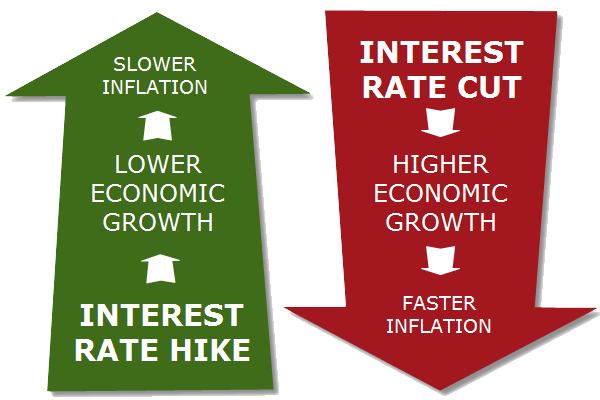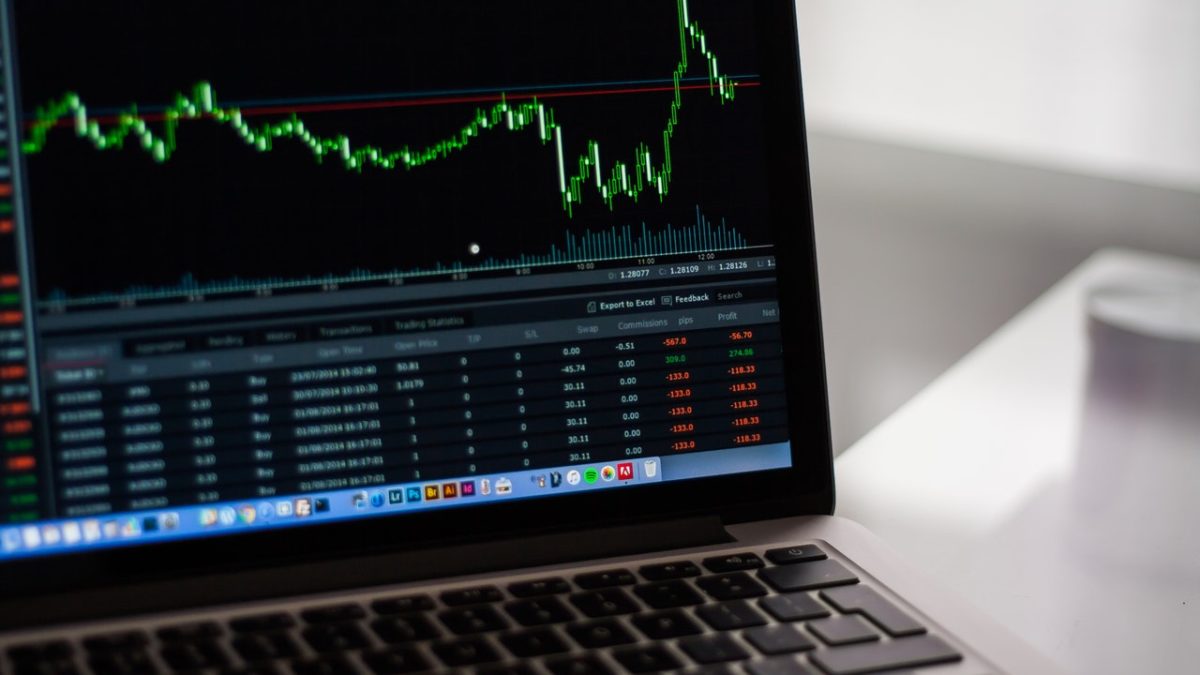Economy
Incessant Interest Rate Hike Affecting Private Sector—NECA, CPPE

By Adedapo Adesanya
The Nigeria Employers’ Consultative Association (NECA) and the Centre for the Promotion of Private Enterprise (CPPE) have raised concerns about the successive increase in the Monetary Policy Rate (MPR) by the Central Bank, saying it will continue to hurt investment decisions in the private sector.
The groups separately expressed concerns about the interest rate hike at the end of the MPC’s 295th meeting on Tuesday in Abuja, where 1.50 per cent was added to the previous MPR of 24.75 per cent, which now stands at 26.25 per cent. In 2024, the central bank has jacked up the cost of borrowing by 750 basis points (7.50 per cent).
The committee also retained the asymmetric corridor around the MPR to +100/-300 basis points and retained the cash reserve ratio of Deposit Money Banks at 45 per cent.
NECA’s Director-General, Mr Adewale-Smatt Oyerinde, in a statement on Tuesday, said that the cost of borrowing for investment by organised businesses had increased since March 2024 when the policy rate was raised to 24.75 per cent.
According to him, the new policy rate of 26.25 per cent will further affect private investment negatively.
“It is implausible to control the current high inflation by continuously raising interest rates.
“Implementing tight monetary policy stance when firms’ investment expenditure and household consumption is at the lowest ebb may further incapacitate production and capacity utilisation in the already challenged private sector,” he said.
The NECA boss said that the persistent high depreciation in the value of the Naira would continue to feed inflation while constraining firms’ investment and household consumption.
He said, consequently, raising the policy rate would further exacerbate inflationary pressure as growth in factor costs and commodity prices become unbounded.
Mr Oyerinde attributed the defying inflationary pressure to the liberalisation of FX in the country, notwithstanding that the economy was heavily import-dependent.
He said that before the total floating FX regime was implemented, the economy was better off with inflation anchoring below the 20 per cent mark.
“Consequently, I urge the government to reconsider the guided FX floating regime, which is a dynamic and flexible FX management regime and has proven to be better than the current regime,” Mr Oyerinde added.
On his part, Mr Muda Yusuf, Chief Executive Officer (CEO) of CPPE, while responding to the outcome of the MPC meeting, said that the rate hike might have a negative impact on the real sector and investments, leading to increased hardship for businesses.
“We have seen yet a further tightening of monetary conditions in the economy. My prayer was for the MPC to pause the rate hikes for a number of reasons.
“First, previous rate hikes have been quite aggressive, hurting output and real sector investments. Most economic operators with credit exposures to the banks have not recovered from previous hikes.
“Interest rates were already around the 30 per cent threshold. Secondly, the extant CRR of 45 per cent has profound liquidity effects on the financial system.
“Both measures have dampening effects on financial intermediation, which is the primary role of banks in an economy.
“Thirdly, the monetary policy transmission channels are still very weak, given the level of financial inclusion in the economy. This limits the prospects of monetary policy effectiveness,” he said.
According to him, the new rate hike is an additional cross to be borne by investors who have exposures to bank credit facilities.
“Naturally, a rigid monetarist disposition by the central bank is expected. But we need to reckon with the costs to the economy.
“Hopefully, with the positive outlook for domestic refining of petroleum products, we may begin to see a moderation in energy cost and a pass-through effect on the general price level.
“This is one silver lining that is on the horizon at the moment.
“Necessary fiscal policy support is urgently needed to compensate for the adverse impact of extreme monetarism on the economy,” Mr Yusuf said.
Economy
NGX RegCo Cautions Investors on Recent Price Movements

By Aduragbemi Omiyale
The investing public has been advised to exercise due diligence before trading stocks on the Nigerian Exchange (NGX) Limited.
This caution was given by the NGX Regulation Limited (NGX RegCo), the independent regulatory arm of the NGX Group Plc.
The advisory became necessary in response to notable price movements observed in the shares of certain listed companies over recent trading sessions.
On Monday, the bourse suspended trading in the shares of newly-listed Zichis Agro-allied Industries Plc. The company’s stocks gained almost 900 per cent within a month of its listing on Customs Street.
In a statement today, NGX RegCo urged investors to avoid speculative trading based on unverified information and to consult licensed intermediaries such as stockbrokers or investment advisers when needed.
It explained that its advisory is part of its standard market surveillance functions, as it serves as a measured reminder for investors to prioritise informed and disciplined decision-making.
The notice emphasised that the Exchange will continue to monitor market activities closely in line with its mandate to ensure a fair, orderly, and transparent market.
“NGX RegCo encourages all investors to base their decisions on publicly available information, including a thorough assessment of company fundamentals, financial performance, and risk profile,” a part of the disclosure said.
It reassured all stakeholders that the NGX remains stable, well-regulated, and resilient, saying the platform continues to foster an environment where investors can participate with confidence, supported by robust oversight and transparent market operations.
“Our primary responsibility is to maintain a level playing field where market participants can trade with confidence, backed by timely and accurate information.
“This advisory is a routine communication, reinforcing that sound fundamentals, not speculation, remain the foundation for sustainable investment outcomes. We are fully committed to preserving the integrity and stability of our market,” the chief executive of NGX RegCo, Mr Olufemi Shobanjo, stated.
Economy
Stronger Taxpayer Confidence, Others Should Determine Tax Reform Success—Tegbe

By Modupe Gbadeyanka
The chairman of the National Tax Policy Implementation Committee (NTPIC), Mr Joseph Tegbe, has tasked the Nigeria Revenue Service (NRS) to measure the success of the new tax laws by higher voluntary compliance rates, lower administrative costs, fewer disputes, faster resolution cycles, and stronger taxpayer confidence.
Speaking at the 2026 Leadership Retreat of the agency, Mr Tegbe said, “Sustainable revenue performance is built on trust and efficiency, not enforcement intensity,” emphasising that the legitimacy and predictability of the system are more critical than punitive measures.
He underscored that the country’s tax reform journey is at a critical juncture where effective implementation will determine long-term fiscal outcomes.
The NTPIC chief stressed that tax policy must serve as an enabler of governance, and should embody simplicity, equity, predictability, and administrability at scale.
These principles, he explained, foster voluntary compliance, reduce operational friction, and strengthen investor confidence. He warned that ad-hoc adjustments or policy drift could undermine reform momentum, unsettle businesses, and deter investment, which thrives on predictable rules rather than shifting announcements. Structured sequencing, clear transition mechanisms, and continuous feedback between policymakers and administrators are therefore critical to sustaining reform credibility.
Mr Tegbe further argued that revenue reform cannot succeed in isolation. Achieving sustainable gains requires a whole-of-government approach, leveraging robust taxpayer identification systems, integrated financial data, efficient dispute resolution, and harmonised coordination across federal and sub-national levels. This approach, he said, reduces leakages, eliminates multiple taxation, and reinforces confidence in the system.
He noted that the passage of four new tax laws marks only the beginning of a broader reform agenda, describing the initiative as a systemic recalibration of Nigeria’s fiscal architecture, rather than a routine policy update.
He further asserted that the true measure of success will be the credibility of implementation, not the design of the laws themselves.
The NRS, he noted, functions as the nation’s “Revenue System Integrator,” with outcomes reflecting the strength of an interconnected ecosystem that encompasses policy clarity, enforcement consistency, digital infrastructure, dispute resolution efficiency, and intergovernmental coordination.
Economy
NUPENG Seeks Clarity on New Oil, Gas Executive Order

By Adedapo Adesanya
The National Union of Natural and Gas Workers (NUPENG) has expressed deep concern over the Executive Order by President Bola Tinubu mandating the Nigerian National Petroleum Company (NNPC) Limited to remit directly to the federation account.
In a statement signed by its president, Mr William Akporeha, over the weekend in Lagos, the union noted that the absence of detailed public engagement had naturally generated tension within the sector and heightened restiveness among workers, who are anxious to know how the new directive may affect their employment, welfare and job security, especially as it affects NNPC and other major operations in the oil and gas sector.
It pointed out that the industry remained the backbone of Nigeria’s economy, contributing significantly to national revenue, foreign exchange earnings, and employment.
The NUPENG president affirmed that any policy shift, particularly one introduced through an Executive Order, has far-reaching consequences for regulatory frameworks, Investment decisions, operational standards, and labour relations within the sector.
According to him, “there is an urgent need for clarity on the scope and objectives of the Executive Order -What precise reforms or adjustments does it introduce? “Its implications for the Petroleum Industry Act -Does the Order amend, interpret, or expand existing provisions under PIA?
“Impact on workers and existing labour agreements-Will it affect job security, conditions of service, Collective Bargaining agreements or ongoing restructuring processes within the industry? “Effects on indigenous participation and local content development -How will it affect Nigerian companies and employment opportunities for citizens?”
He warned that without proper consultation and explanation, misinterpretations of the Executive Order may spread across the industry, potentially destabilising operations and undermining industrial harmony that stakeholders have worked hard to sustain.
“Though our union remains committed to constructive engagement, national development and stability of the oil and gas sector, however, we are duty-bound and constitutionally bound to protect the rights and welfare and job security of our members whose livelihoods depend on a clear, fair and predictable policy framework,” Mr Akporeha further stated.
-

 Feature/OPED6 years ago
Feature/OPED6 years agoDavos was Different this year
-
Travel/Tourism10 years ago
Lagos Seals Western Lodge Hotel In Ikorodu
-

 Showbiz3 years ago
Showbiz3 years agoEstranged Lover Releases Videos of Empress Njamah Bathing
-

 Banking8 years ago
Banking8 years agoSort Codes of GTBank Branches in Nigeria
-

 Economy3 years ago
Economy3 years agoSubsidy Removal: CNG at N130 Per Litre Cheaper Than Petrol—IPMAN
-

 Banking3 years ago
Banking3 years agoSort Codes of UBA Branches in Nigeria
-

 Banking3 years ago
Banking3 years agoFirst Bank Announces Planned Downtime
-

 Sports3 years ago
Sports3 years agoHighest Paid Nigerian Footballer – How Much Do Nigerian Footballers Earn

















